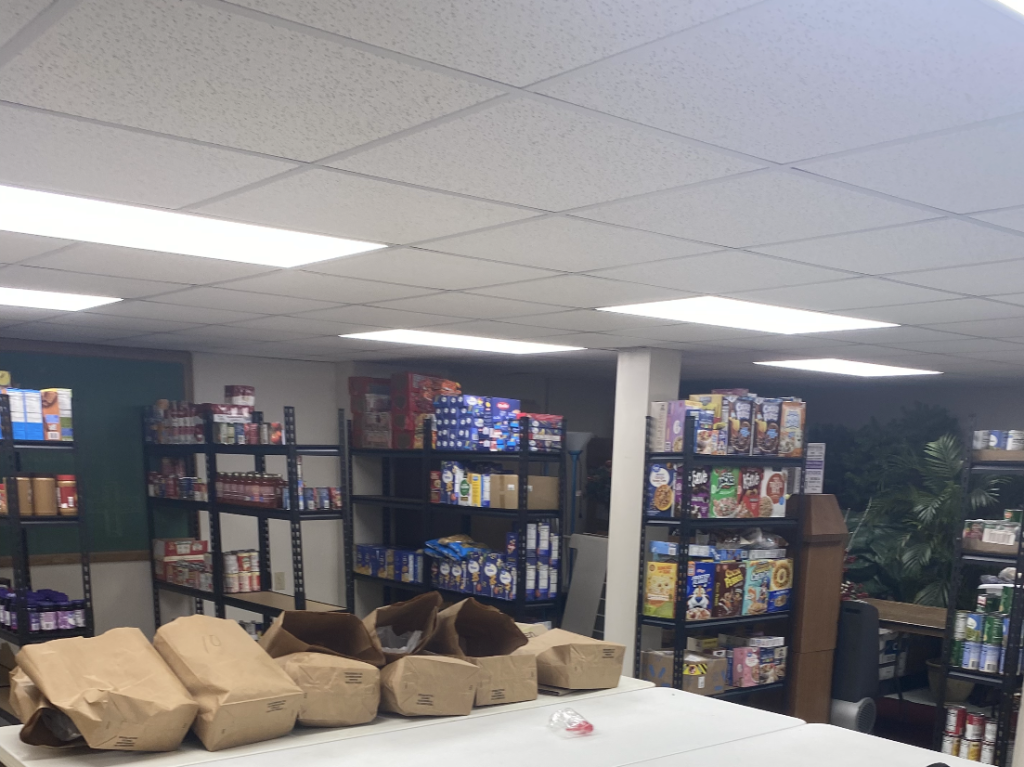The absence of a state budget and the ongoing federal government shutdown are causing significant disruptions for local agencies in Pennsylvania. Many organizations are modifying their services and laying off staff to cope with reduced funding. As a result, approximately 2 million Pennsylvanians are among the 42 million Americans facing potential cuts to their benefits from the Supplemental Nutritional Assistance Program (SNAP), effective November 1.
In a recent development, two federal judges ordered government officials to access contingency funds to maintain SNAP benefits. However, these rulings may be contested, leaving many vulnerable individuals uncertain about their support options.
Kimberly Hawk, CEO of the Fayette County Community Action Agency (FCCAA), highlighted the impact on local families. Her organization’s food bank serves around 2,000 households, equating to 3,100 to 3,400 individuals receiving food boxes each month. “We have had people call who are worried and concerned about the SNAP benefits not being available come November 1, especially from our senior population,” she noted.
Current funding constraints have forced FCCAA to implement temporary service reductions. Utility assistance vouchers are currently unavailable, food pantry boxes will contain fewer items, and home-delivered meals are now distributed bi-weekly, with each delivery including three frozen meals. Despite these challenges, services provided through the Women, Infants, and Children (WIC) program will continue uninterrupted.
The financial strain has led to the layoffs of 35 staff members at FCCAA, with remaining employees facing reduced hours. Hawk expressed concern that if the budget stalemate persists, more services could be cut and additional layoffs may follow. “We are doing everything we can to maintain essential services and support those in need during this uncertain time,” she stated.
In contrast, Diana Irey Vaughan, president and CEO of City Mission, affirmed that her organization is not planning to reduce their services. “Individuals need us now more than ever,” she remarked. City Mission has seen a surge in demand, more than doubling its capacity to provide food assistance on Tuesdays and Thursdays. “More than half are individuals who we’ve never served before,” she added.
Community support is also on the rise, with churches organizing food drives and individuals contributing to the mission’s food pantry. “As the need grows, we are seeing the generosity of others grow as well,” Irey Vaughan commented.
In addition to operational adjustments, Teresa Burroughs, executive director of the LeMoyne Community Center, shared that the organization is reducing work hours but still maximizing productivity. “If it’s an eight-hour shift, we’ll have one person come in the morning and work four hours, and another person will come in the afternoon and work the other four hours,” Burroughs explained. She anticipates a full resumption of services once funding is restored.
Burroughs is preparing for the center’s food bank on November 8, expressing optimism about having sufficient supplies to assist families in need. “We’re doing everything we can to help families,” she affirmed.
To address food insecurity in Washington County, several resources are available. County Commissioner Larry Maggi has encouraged those not needing assistance to volunteer or donate to support struggling agencies. “We are going to have to work together to make sure no one goes hungry during these trying times,” Maggi stated.
For those seeking emergency food help, various options are accessible in both Fayette and Washington counties. Fayette County residents can contact 724-437-6050 for emergency food assistance and information on nearby pantries. The Greater Washington County Food Bank operates locations at Southpointe and Centerville Pantry, with monetary donations accepted at their office in Canonsburg.
Distribution schedules for the Greater Washington County Foodbank’s Community Outreach Program are as follows: Avella VFD on the third Wednesday from 09:00 to 11:00, California Manor on the third Thursday from 09:00 to 11:00, and several other locations throughout the month. While there are no income or residency restrictions, pre-registration is required, although walk-ups are welcome. More comprehensive support is available through PA 211, allowing individuals to dial 211 or text their zip code to 898-211 for local food and assistance services.
As local agencies navigate these funding challenges, the commitment to assisting those in need remains steadfast, showcasing the resilience and solidarity of the community.







